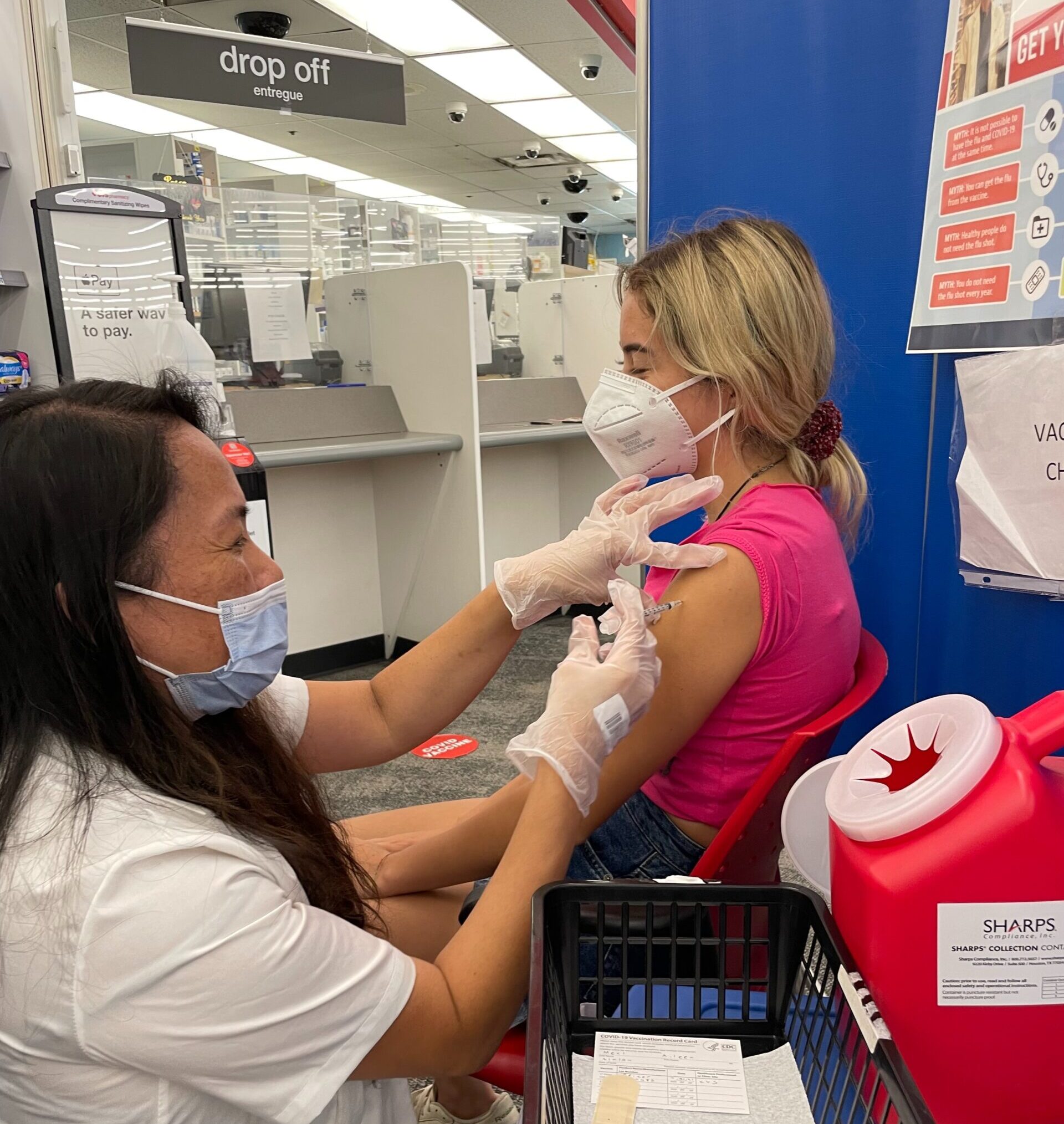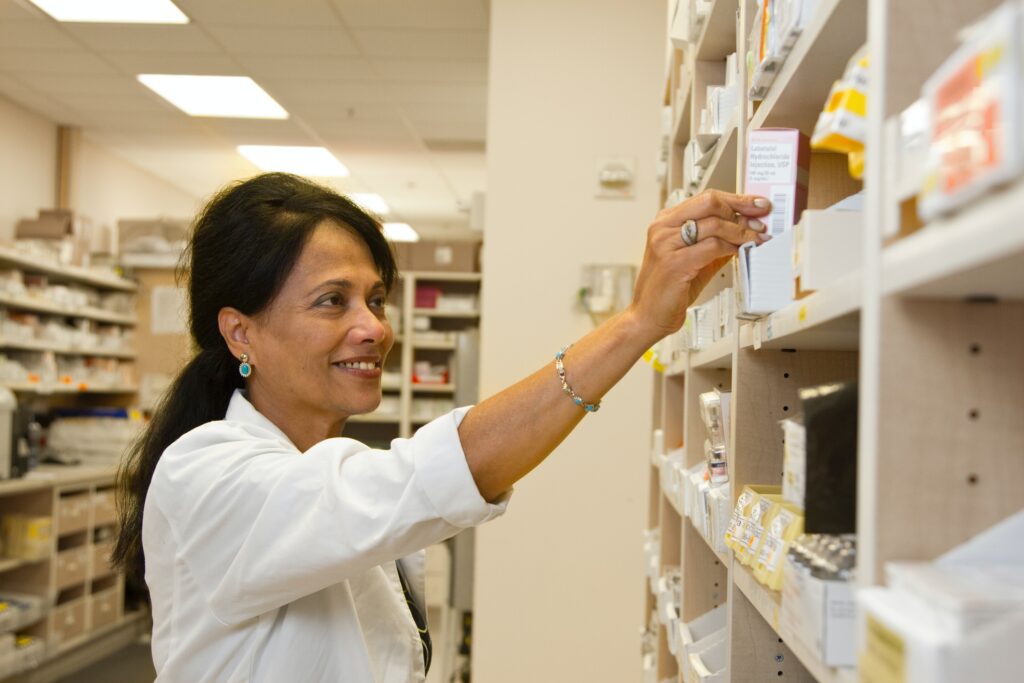Building the Capacity of South Carolina Community Pharmacies to Intervene on the Social Determinants of Health
Social determinants of health (SDOH) (such as stress, social isolation, food insecurity) can have a major impact on the overall well-being of individuals. However, these factors can be complex, and establishing trust is necessary to address the SDOH barriers that individuals may face in an effective and appropriate way.
Following the initial phase of the project, described below, we have identified several additional opportunities to further build on what we have learned. For this reason, the project has been extended through December 2023 to allow us to continue this work with the support of The Duke Endowment.

Initial Pilot
The initial phase of the project (2019-2022) served as a pilot through which community pharmacy teams were trained to identify key SDOH, better understand the impacts they have on health and well-being, and then intervene on those social determinants to improve patient health. Communities pharmacies were selected for this purpose due to their unique settings, which tend to organically foster relationships with patients and community members through contexts such as local ownership and maintaining the same key staff over time. These pharmacies also serve as critical connections to health services and information for our state’s residents; especially in rural areas of the state.
By building the capacity of community pharmacies to address SDOH, our project worked to establish and test formal processes for many of the activities that community pharmacies are already doing. These activities leveraged their experience, skills, and social trust to improve the health of their patients. Formal processes involved identifying patients’ SDOH needs through a brief survey, referring them to appropriate community resources based on the needs identified, and following up with the patient to confirm whether they were able to connect to those resources.
Initial Pilot Goals
To build the capacity of community pharmacies to address SDOH barriers experienced by their patients, we aim to:
- Identify facilitators and barriers to community pharmacies implementing SDOH processes into their workflows.
- Develop and refine best practices for implementing SDOH approaches that align with existing pharmacy workflows.
- Evaluate the impact of SDOH work conducted in pharmacies in terms of project implementation.
- Explore what model(s) could be used to reimburse pharmacies for SDOH work to promote sustainability.

Current Focus
Based on learnings gained through the initial pilot, we have finalized a set of best practices for implementing SDOH work in community organizations that similarly foster relationships and trust with community members. Through the project extension, we will expand on these best practices across the following activities:
1. SDOH Training
Throughout the project, many pharmacies expressed an understanding of what SDOH were, but shared that they were not comfortable having the sensitive conversations that are often required to support related needs. Additionally, there was a need to stratify approaches for different levels of SDOH supports that pharmacies could provide based on their capacity.
Following this feedback from pharmacies, as well as ongoing SDOH work across South Carolina, we plan to develop a training on SDOH which would be available to community pharmacies and other individuals or organizations who may benefit. The training may utilize either a live virtual format and/or a “roadshow” format which could be provided at relevant conferences, summits, professional meetings, and other settings as appropriate. In alignment with the other trainings offered by CCHA, it would include both educational and applied pieces (e.g., role plays, facilitated dialogue, text resources, etc.) and be designed for sustainability beyond the project period. Finally, it would clearly extrapolate what appropriate approaches could look like at different levels of engagement, helping to ensure that resulting efforts were aligned with the capacity of those aiming to integrate this type of work.
2. Manuscript Writing
Currently, a manuscript is in progress which is intended to detail the project from an implementation science perspective. It is planned to include sections on original project setup, development of a change package to support a quality-focused approach, and the best practices and lessons learned.
—–
With this foundation, we will continue engaging with key stakeholders to identify further opportunities to support community organizations in this work, building on their strength and mutual trust to help community members address social needs.
If you are interested in learning more about this project or partnering with us, we welcome your input! Please contact Alex Scott at aescott@email.sc.edu.

